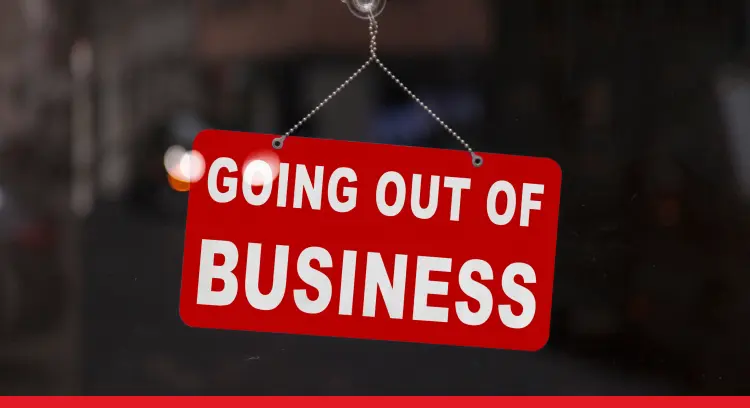The Future of Fake Meat | February 2023
Plant-based meat products can help address a variety of issues, including heart disease, climate change, animal welfare, and more.
According to Ethan Brown, the CEO of Beyond Meat, plant-based meat products can help address a variety of issues, including heart disease, climate change, animal welfare, and more. Fake meat, he has said, can address the greenhouse gas emissions problem in the meat industry.
Many investors believe in Beyond Meat’s product. Unlike veggie burgers of the past, Brown’s fake meat product was designed to look and taste like beef in order to appeal to meat eaters, not just vegetarians and vegans. This concept attracted venture capitalists and investors such as Tyson Foods Inc., the largest annual beef exporter in the United States, and Bill Gates who invested in both Beyond Meat and its direct competitor Impossible Foods. By 2018, Beyond Meat was valued at $1.3 billion.
Investors were just as eager to invest in Impossible Foods which raised $183 million before it sold a single product. Like Brown, Impossible Foods’ founder worked to convince people that his fake meat product could solve many societal problems. He predicted his company would capture a significant portion of the beef market by 2024 before tackling other meat categories. Now, however, this timeline seems unlikely.
Competition heats up
Two important things happened that sent competitors rushing into the fake meat market. First, Beyond Meat’s history-making initial public offering (IPO) in 2019 was the most successful IPO since the Great Recession of 2008.
Second, the COVID-19 pandemic in 2020 disrupted the supply chain across many food categories, especially meat products. This caused a surge in demand for meat alternatives. Fast-food restaurants such as KFC, Burger King, and Starbucks introduce new menu items featuring plant-based meats.
Plant-based meat growth slows
As supermarkets and supply chains returned to normal, demand for plant-based meat declined. In the past year, Beyond Meat has laid off at least 20 percent of its employees and pumped the breaks on product development. Interestingly, Dunkin’ pulled fake sausage from its menu, Taco Bell is not likely to release Beyond Meat’s carne asada it tested due to mixed reviews, and McDonald’s has yet to make the McPlant meatless burger a permanent menu item.
Meanwhile, Impossible Foods seems to be performing a little better, adding new restaurant partners and introducing new products such as fake chicken nuggets. According to the company, demand for its product from restaurants continues to grow. The company CEO Peter McGuinness has been quoted that even though competitors in the industry have struggled, this does not reflect Impossible Foods’ success. Impossible burgers are sold in 30,000 supermarkets and in more than 45,000 restaurants.
The future of meatless meat
Plant-based products still have enthusiastic customers. Brown suggests the meat industry has contributed to fake meat’s challenges by suggesting the products are unhealthy and over-processed. Whole Foods, Chipotle Mexican Grill, and others have expressed skepticism about the healthfulness of the product. According to a report from Citi Global Insights, half of Americans considered fake meats to be healthy in 2020, but now only 38 percent believe this to be true. Brown disagrees.
After a lengthy Bloomberg Businessweek report called fake meat a fad, Impossible Foods responded by placing a full-page ad in The New York Times and wrote a blog post saying the Bloomberg report was one-sided. The authors of the blog post say the report spreads misperceptions about plant-based meat’s environmental potential and doesn’t show the whole picture about sales data.
According to Impossible, the company has achieved record sales every single years since its commercial debut, and it has an impressive customer retention rate. Additionally, the company says more than 90 percent of people who purchase Impossible report eating meat products, suggesting most Impossible consumers are meat eaters and flexitarians.
In addition to the brewing uncertainty about the benefits of fake meat, plant-based meat products continue to cost more than their meat counterparts and have been affected by inflation. Adding to the challenge, competition is at an all-time high. Meatless burger brands include Beyond Meat, Dr. Praeger’s, Gardein, Impossible, Sweet Earth, MorningStar Farms, Boca, Incogmeato, and more.
Some critics suggest meatless meat is simply a food trend and a niche category rather than a true game changer. Looking to the future, Impossible Foods is considering new avenues for growth such as increasing consumer awareness, introducing new and enticing promotions, and increasing distribution points. The company is focused on improving costs to make the product more affordable.
In the Classroom
This article can be used to discuss the marketing concept (Chapter 11: Customer-Driven Marketing).
Discussion Questions
Who are Beyond Meat’s competitors?
Considering the marketing concept, what needs are plant-based meats satisfying?
In your opinion, is plant-based meat simply a trend? Why or why not?

This article was developed with the support of Kelsey Reddick for and under the direction of O.C. Ferrell, Linda Ferrell, and Geoff Hirt.
Sources
Deena Shaker, "Fake Meat Was Supposed to Save the World. It Became Just Another Fad," Bloomberg, January 19, 2023, https://www.bloomberg.com/news/features/2023-01-19/beyond-meat-bynd-impossible-foods-burgers-are-just-another-food-fad
Hoang Samuelson, "Plant-Based Meat Is in Free Fall," Yahoo!, January 27, 2023, https://www.yahoo.com/lifestyle/plant-based-meat-free-fall-190000106.html
Impossible Foods, "Bloomberg Was Supposed to Report the Facts. It became Just Another Opinion Piece," January 22, 2023, https://impossiblefoods.com/blog/here-for-good
Lisa Fickenscher, "Impossible Foods Punches Back Against Report Calling Fake Meat a ‘Fad’," NY Post, January 23, 2023, https://nypost.com/2023/01/23/impossible-foods-punches-back-against-report-calling-fake-meat-a-fad/



